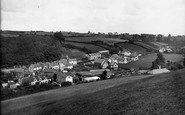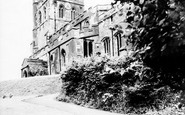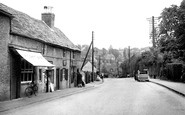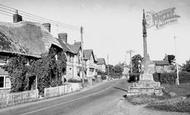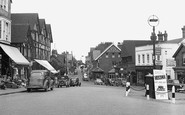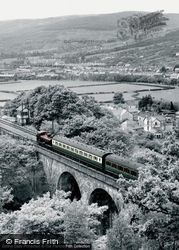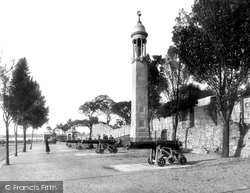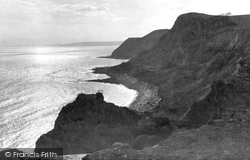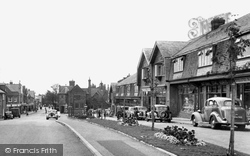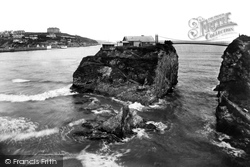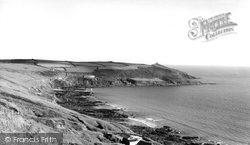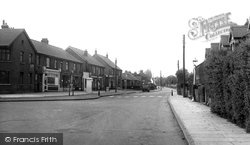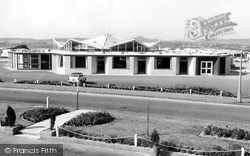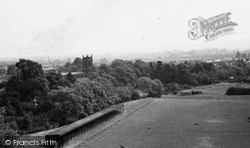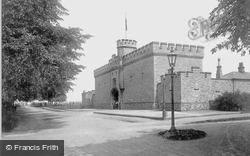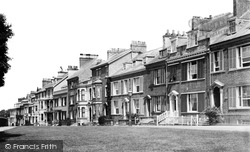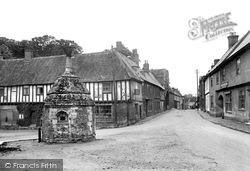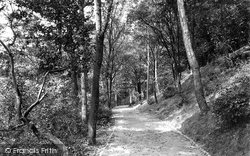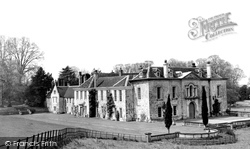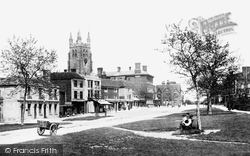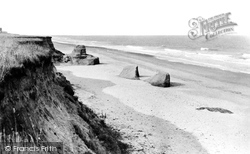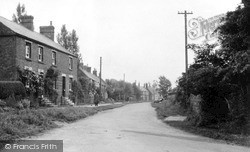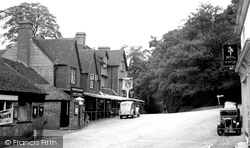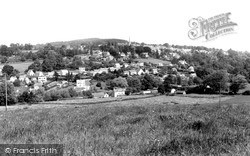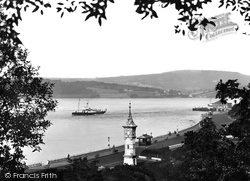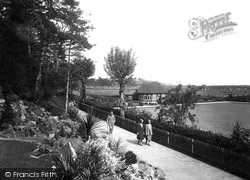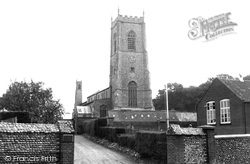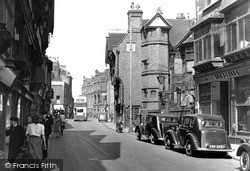Places
Sorry, no places were found that related to your search.
Photos
2 photos found. Showing results 21 to 2.
Maps
Sorry, no maps were found that related to your search.
Books
Sorry, no books were found that related to your search.
Memories
94 memories found. Showing results 11 to 20.
Childhood Memories
Hello, I was born in Builth Wells hospital in 1957, we were living in the village of Tirabad at the time. My uncle and auntie, Ellis and Dot Topliss, plus my cousins also lived here. My father and uncle worked for the forestry ...Read more
A memory of Tirabad in 1957 by
Childhood Memories
In August 1939 I came to Roadwater from Kingston, Surrey to stay with my grandparents for my summer school holidays. My grandmother's name was Eva Morse and my grandfather's Rupert Morse. At that time they lived in a house ...Read more
A memory of Roadwater in 1930 by
Childhood Memories
Born in Bradford in 1956, emigrated to Australia in 1969 (40 years this year). Memories of my grandma's house in Arum Street, Canturbury where I was born in her lounge room and going to church every Sunday morning in the snow. ...Read more
A memory of Bradford in 1956 by
Childhood Years
My name is now Marie Moore but my maiden name was Jeeves. Memories of Cayton Bay 1960s to 70s will stay with me forever, my nannan, mam and her 2 sisters all had their own caravans on Wallis's Holiday Camp, our caravan number ...Read more
A memory of Cayton Bay in 1963 by
Childhood Days
I think we moved to Edlesborough in 1953/54, when I was 3/4 and my brother Philip was 6/7, my father worked for farmer Pratt, at Southall Farm along Northall Road. I think it now sells furniture, we lived at No 23. I attended ...Read more
A memory of Edlesborough in 1954 by
Childhood Summer Holidays At Taylor's Rock, Woodhouse Eaves
I spent many a summer holiday as a child (between 1976 and around 1983) at Taylor's Rock on Beacon Road, Woodhouse Eaves. I still consider it to be the only place I have ever truly ...Read more
A memory of Woodhouse Eaves in 1982 by
Climbing The Hill
I have memories of climbing the beacon and sitting on top around the hole. Looking at it now, that was a feat in itself.
A memory of Culmstock in 1970 by
Coronation Day In Shillingstone Plus Other Memories
I can remember Coronation Day in Shillingstone, the weather was not settled and there were showers, I can remember watching the crowning of the Queen on a TV which was in Mrs Fudge's house ...Read more
A memory of Shillingstone in 1953 by
Crowborough Memories
I came to Crowboroughwhen I was eight in 1942. My father who was in the army had been posted to the area. Initially for a few weeks we rented the Beacon School ( it must have been during the holidays as no one was there ) I ...Read more
A memory of Crowborough by
Day Trips To Brecon
As a child growing up in the mining village of Cwmtwrch in the 1940's and 50's, I enjoyed the family day trips to the cathedral town of Brecon, especially in summer. The public bus would take us from Ystradgynlais to Brecon,a ...Read more
A memory of Brecon by
Captions
136 captions found. Showing results 25 to 48.
This superb view of Glyn Neath shows both the railway in the foreground, complete with steam engine, and the rolling hills beyond.
The Pilgrim Fathers' Monument is built of Portland stone and rises 50 feet above the ground.
The sun sets over Lyme Bay, silhouetting the cliffs.
It is thought that the name Telegraph Road comes from a 19th-century telegraph station that stood on top of the Beacons, to the west of the road; but if that was the case, it was not part of the telegraph
A house was built here and connected to the mainland by a suspension footbridge in the early 20th century.
The small square chapel on Rame Head is that of St Michael, built in the 14th century; it originally housed a beacon to guide ships into Plymouth Sound just round the corner.
Corringham was a small, remote village before the coming of the oil-refineries: the petrol-station sign in the distance says it all. This parade was built in 1929.
The Palladium Bar was opened when the site was first developed for leisure. The zig-zag roof now covers a swimming pool, and the displaced bar is in a new part of the extended building.
The Pilgrim Fathers' Monument is built of Portland stone and rises 50 feet above the ground.
Towards the north-west lies the mound of Beacon Hill. The earliest origins of Loughborough may be here.
Across the Witham, Avenue Road becomes Beacon Lane and passes the old barracks of 1858 and 1872 of the Royal South Lincolnshire Militia, now occupied by an auctioneers and valuers.
As Exmouth developed, residential streets such as the mostly Georgian Beacon Terrace were built on higher ground overlooking the sea.
This old dome-shaped weather-beaten pump dates back to medieval times, and is situated at an important junction in the middle of this historic town.
The Plantation and Madeira Walk below The Beacon and Louisa Terrace are a delightful stretch of green wooded shelter on hot days.
This is a splendid picture of the magnificent Georgian facade of Firle Place, which disguises the original Tudor structure.
The 15th-century grey tower of St Mildred's Church, with its bold crocketed pinnacles, dominates the centre of this small town, which stands 322 feet above sea level; it was formerly used as a beacon
Such was the concern in 1791, that two beacons were erected, illuminated by lanterns holding many candles; one became the lighthouse, and another stood about 400 yards north of Cart Gap.
At the Melton sign the A606 does a double- bend.
Many of the present buildings in Burley are Victorian and 20th-century, but the village itself is an ancient Forest settlement.
Four miles from Stroud, picturesque Painswick titles itself 'Queen of the Cotswolds'.
The river Exe from Beacon Hill. This fashionable area was home to Lady Nelson after her estrangement from the Admiral. By the time this picture was taken, the holiday business was well established.
In olden days a beacon fire was lit on the headland to alert the countryside to threats of raids and possible invasion.
The small tower at the far end of the church served as a mark for sailors heading for the port: it used to carry a beacon at night.
The trams have given way to buses and the horse-drawn vehicles to motorcars, and hatless heads are now commonplace.
Places (0)
Photos (2)
Memories (94)
Books (0)
Maps (0)

